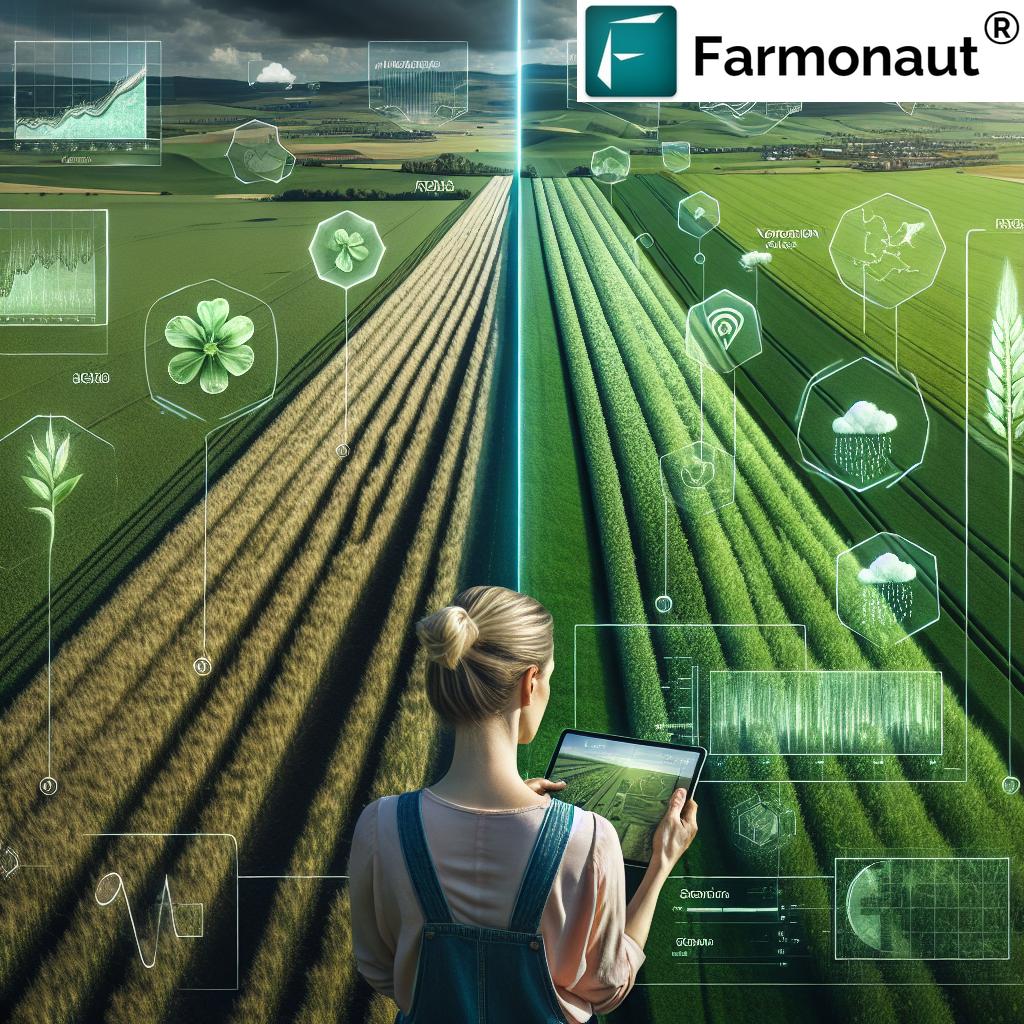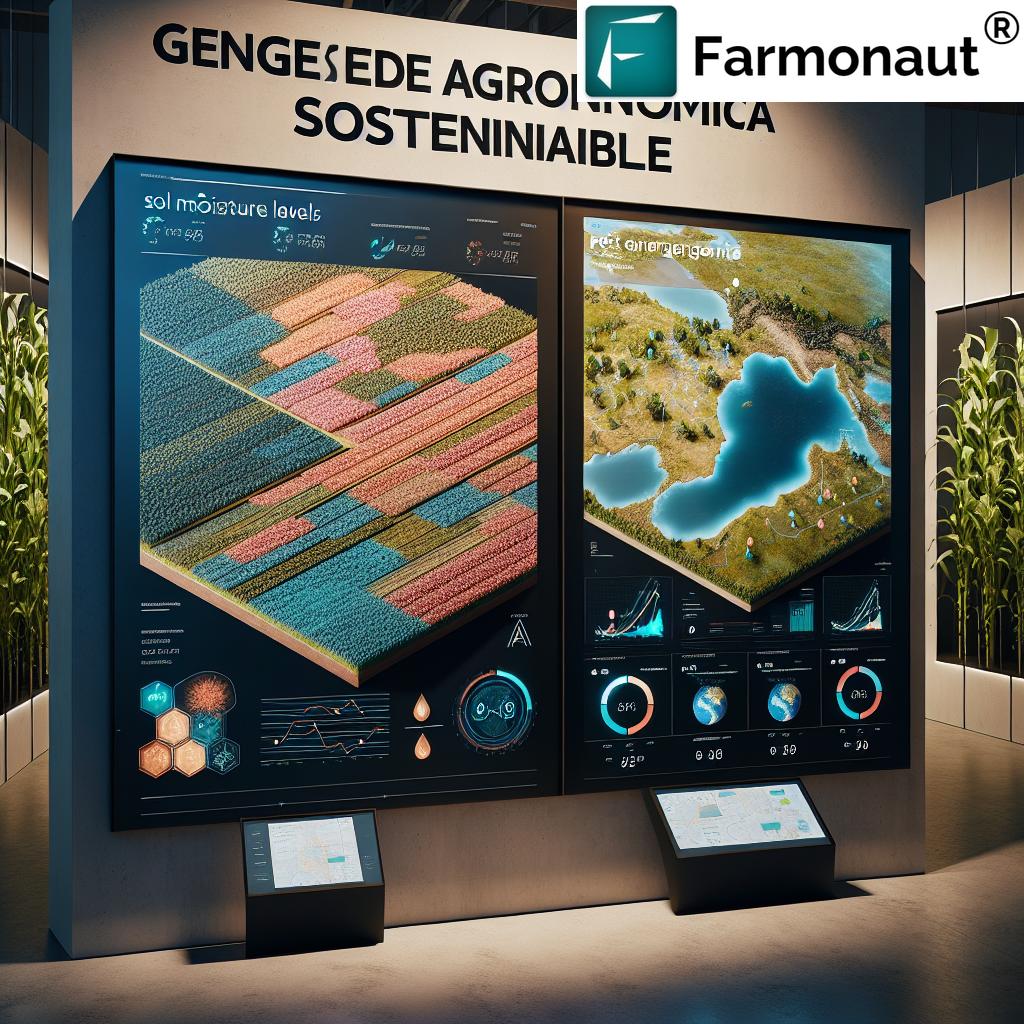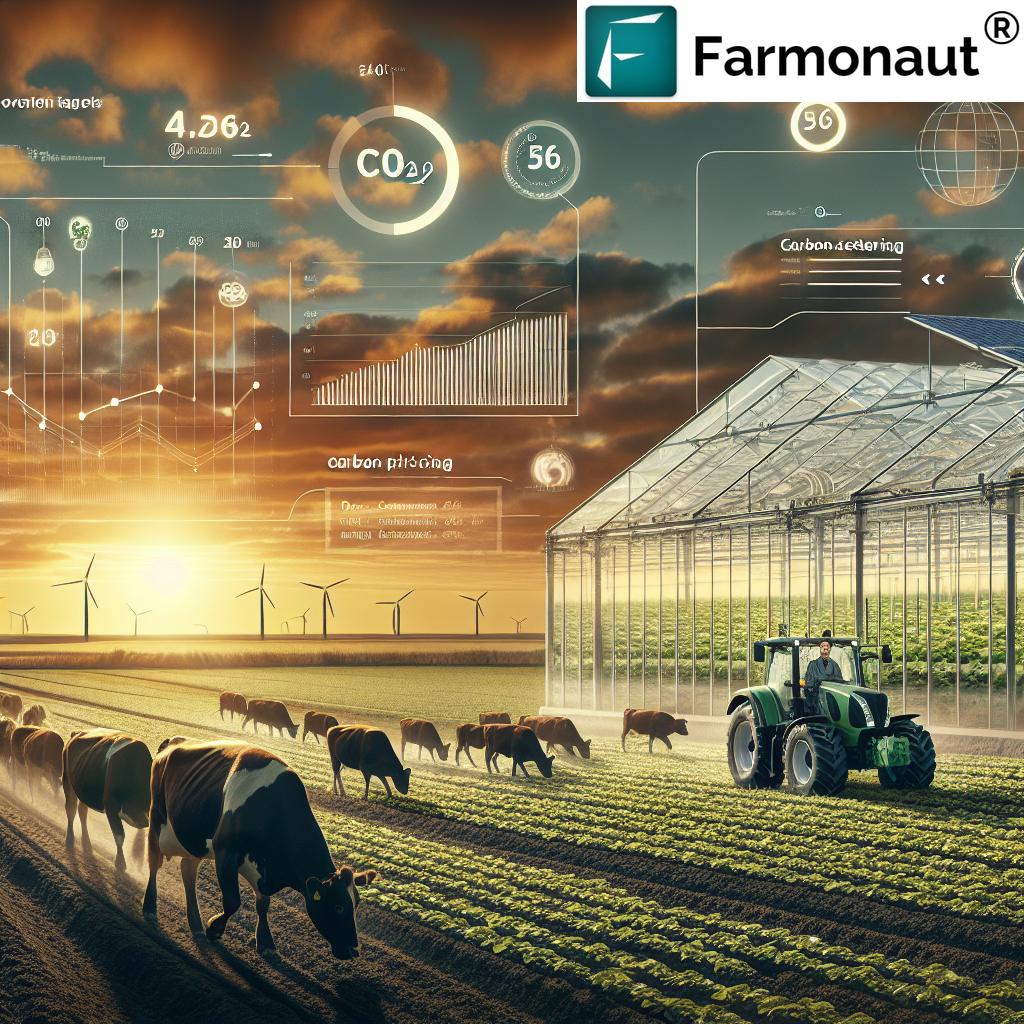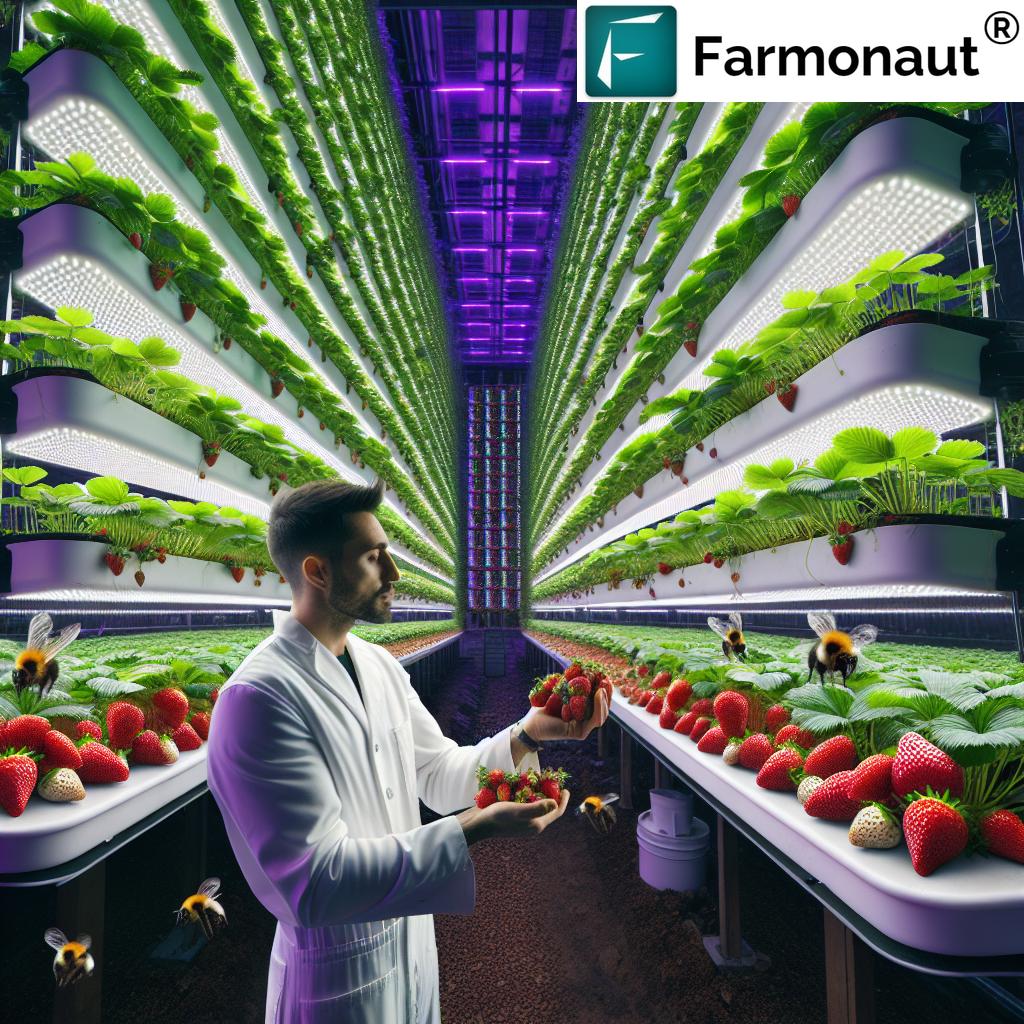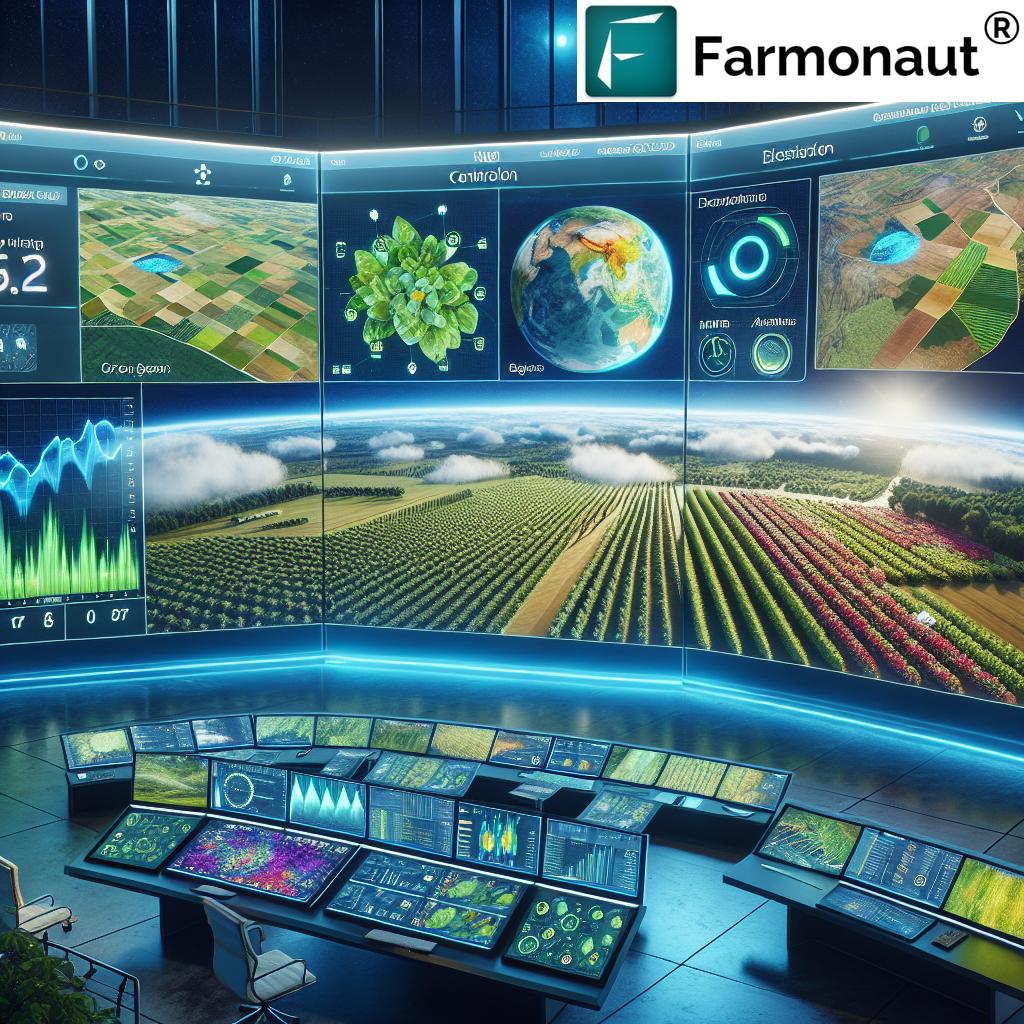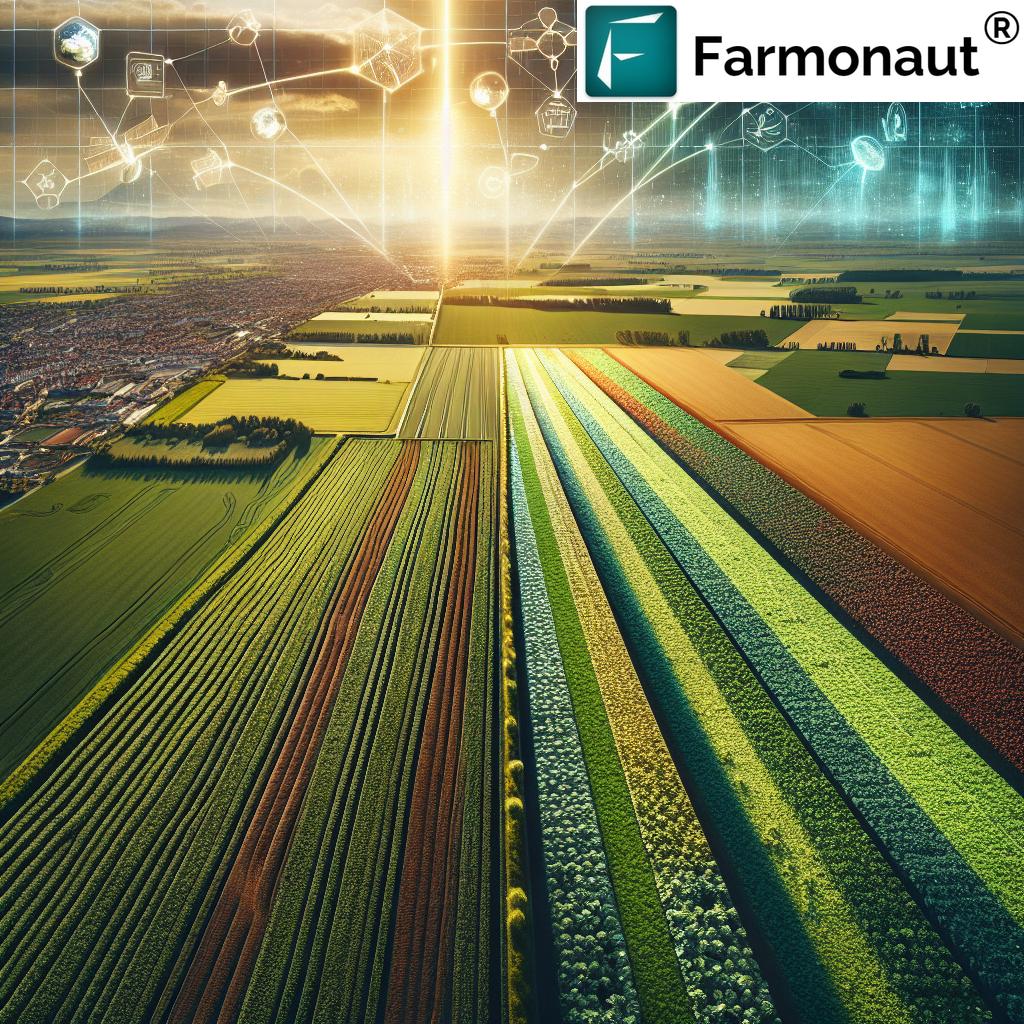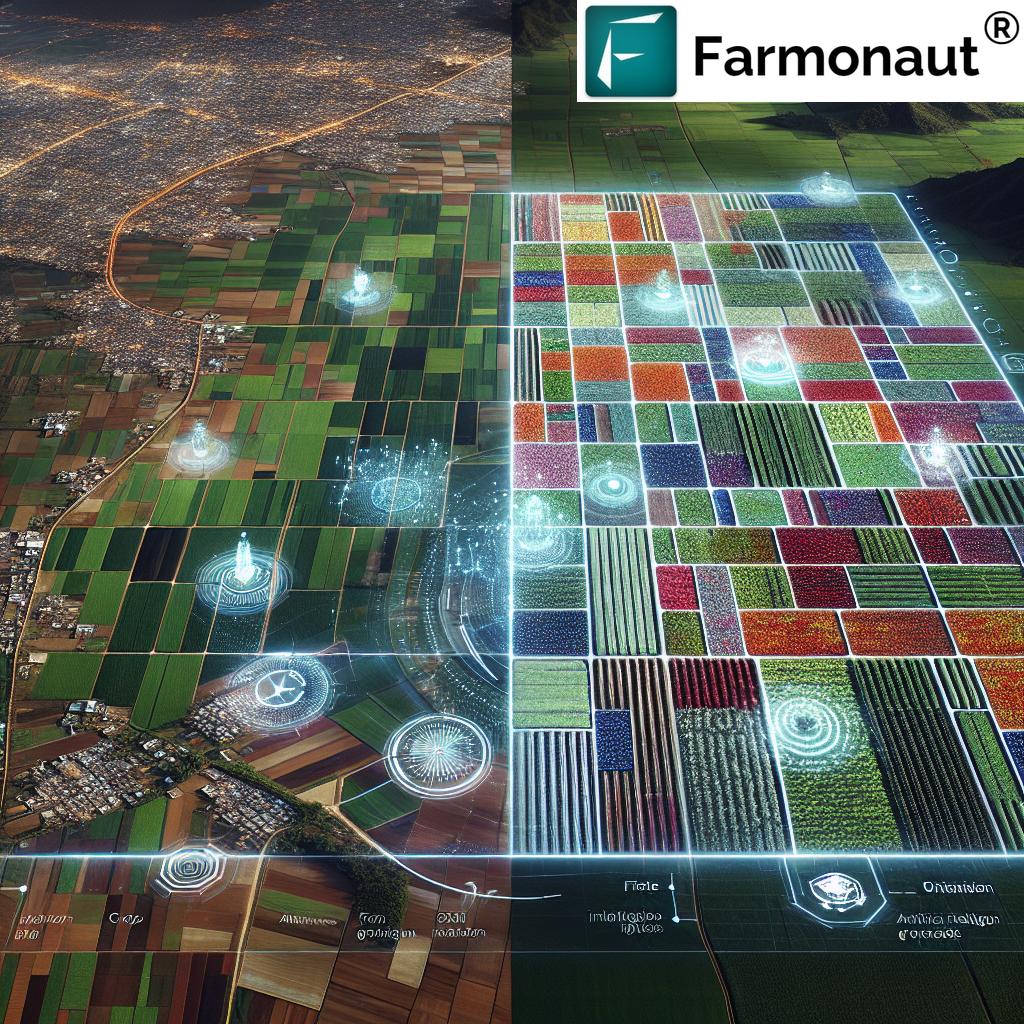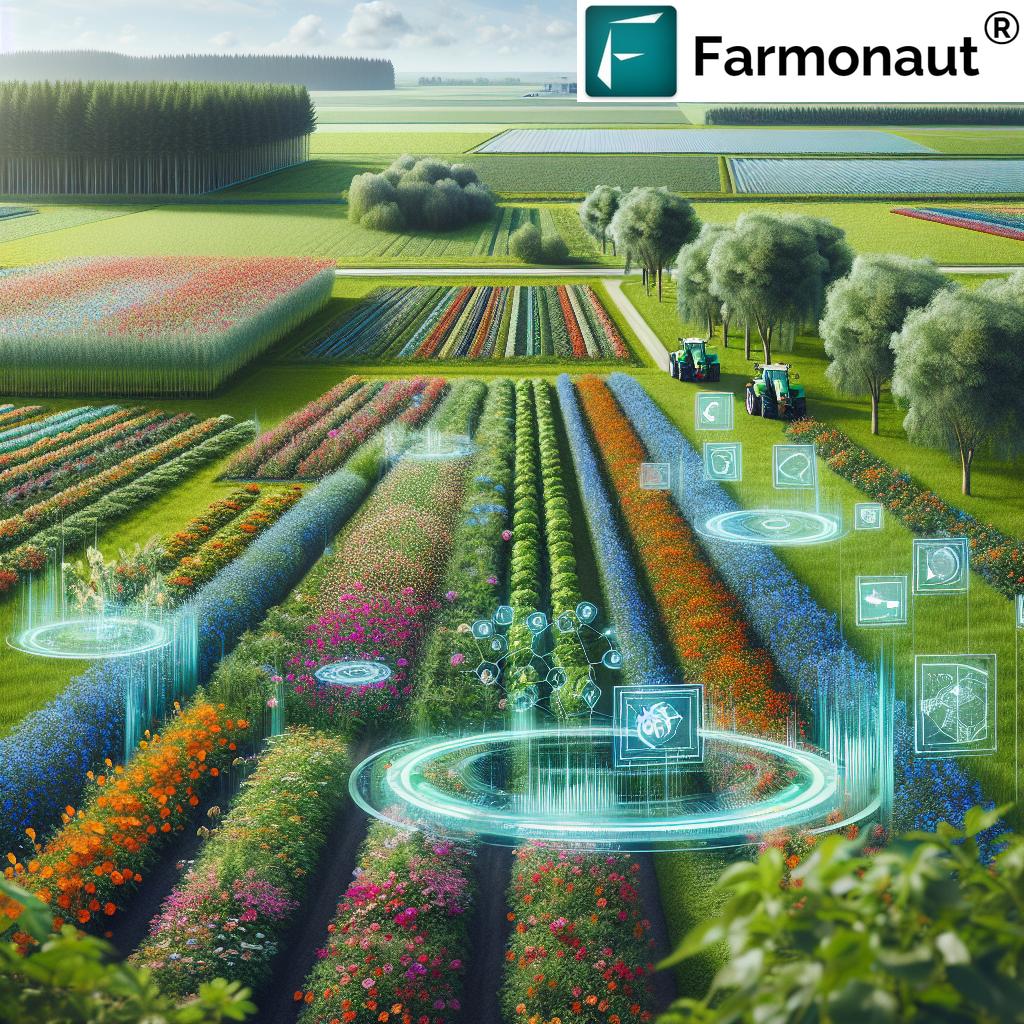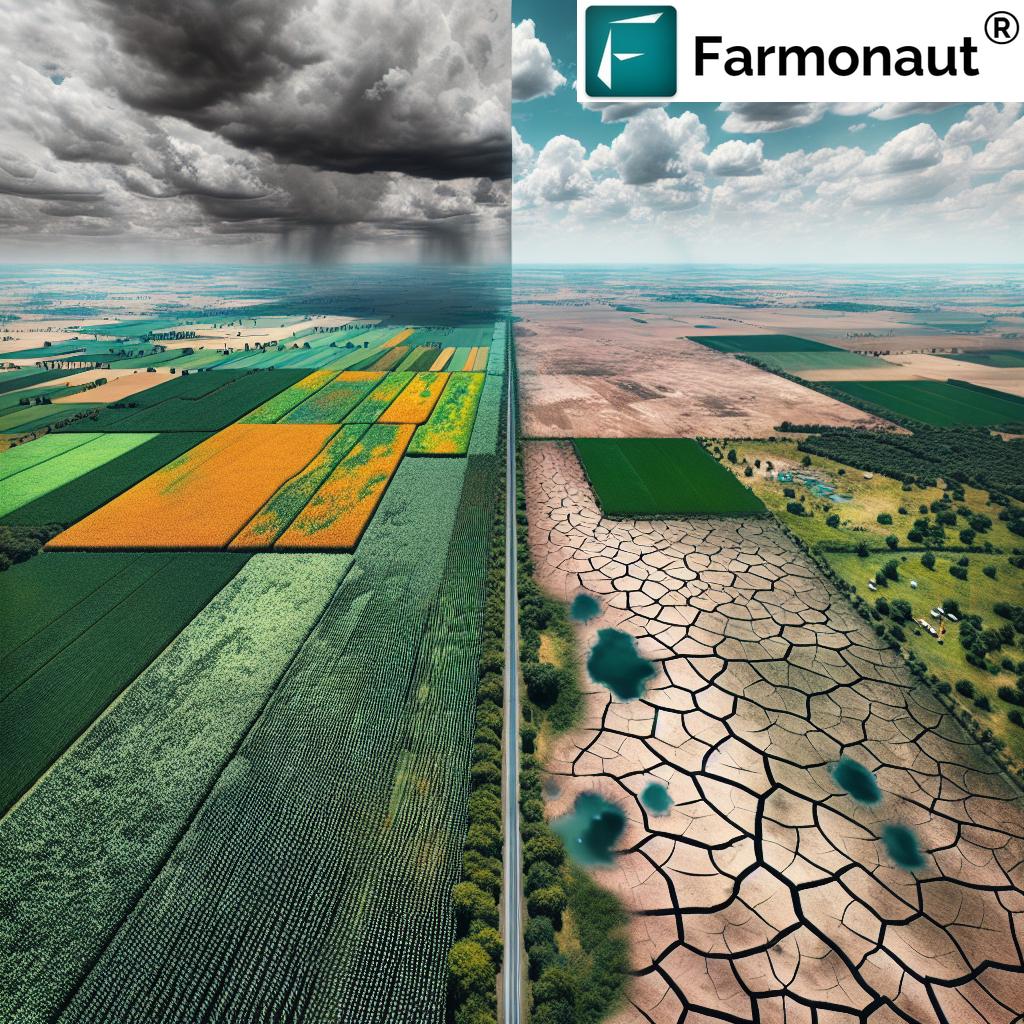Revolutionizing Agriculture: How Nuclear Science and Space Experiments are Enhancing Food Security and Sustainability in Vienna
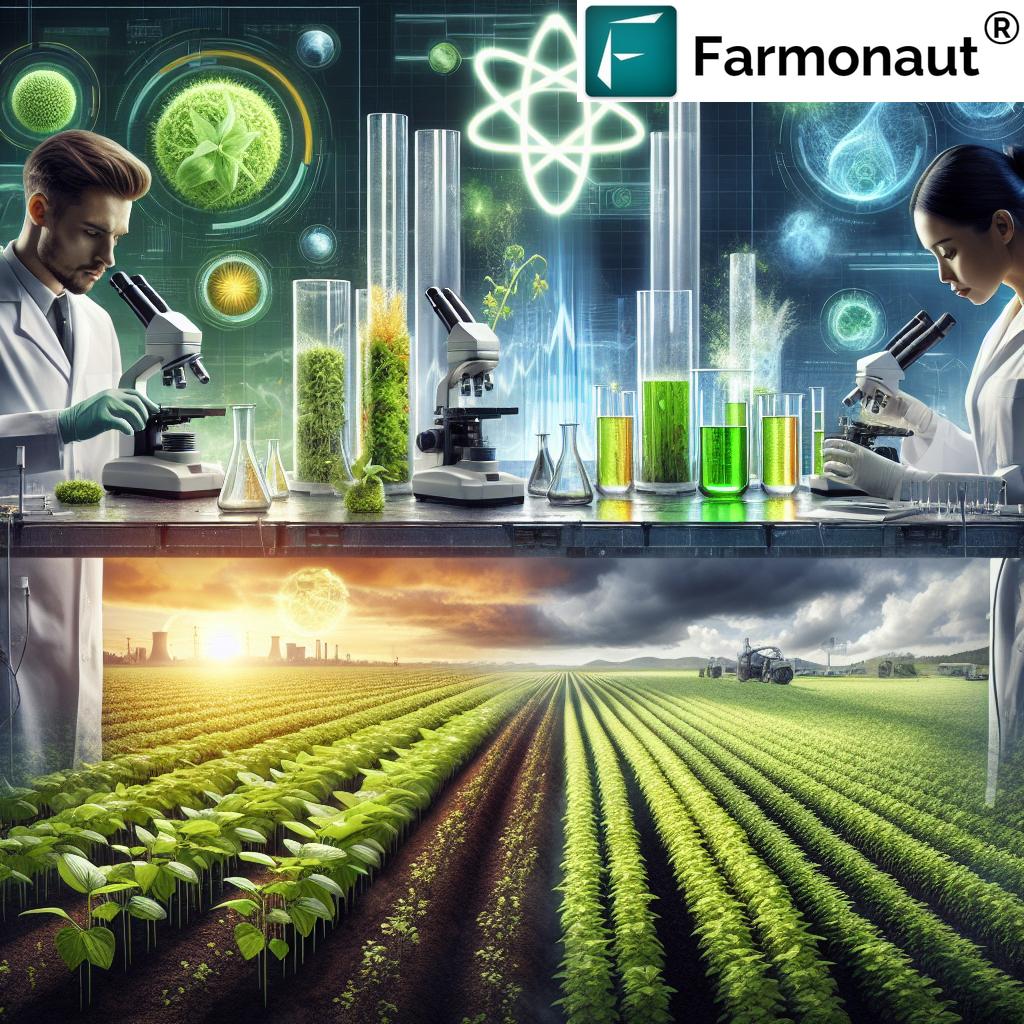
“Nuclear techniques in agriculture have improved crop yields by up to 30% in some regions.”
In the heart of Vienna, a revolution is taking place that promises to transform the future of agriculture and food security worldwide. We’re witnessing an extraordinary convergence of nuclear science, space technology, and sustainable agriculture techniques that are reshaping how we produce food and manage our precious natural resources. This blog post delves into the groundbreaking initiatives and innovations that are enhancing agricultural productivity, improving food security, and promoting sustainability in the face of global challenges.
The Power of Collaboration: FAO and IAEA’s 60-Year Partnership
At the core of this agricultural revolution is the remarkable 60-year collaboration between the Food and Agriculture Organization (FAO) and the International Atomic Energy Agency (IAEA). This partnership, celebrated recently in Vienna, has been instrumental in harnessing nuclear science for the dual goals of enhancing food security and promoting environmental sustainability.
The Joint FAO/IAEA Centre of Nuclear Techniques in Food and Agriculture, established in 1964, has been at the forefront of applying nuclear science to agricultural challenges. Over the decades, this collaboration has yielded significant achievements in various areas:
- Soil and water management
- Animal husbandry
- Innovative pest control strategies
- Development of climate-resilient crop varieties
These advancements have not only contributed to increased productivity but have also ensured safer food production practices globally.
Nuclear Science in Agriculture: A Game-Changer
The application of nuclear science in agriculture has been nothing short of revolutionary. Let’s explore some of the key areas where nuclear techniques are making a significant impact:
1. Plant Mutagenesis: Breeding Resilient Crops
One of the most exciting applications of nuclear science in agriculture is plant mutagenesis. This technique involves using controlled radiation to induce genetic mutations in plants, leading to the development of new, more resilient crop varieties. These crops are better equipped to withstand environmental pressures such as drought, pests, and diseases.
Benefits of Plant Mutagenesis:
- Increased crop yields
- Enhanced resistance to pests and diseases
- Improved tolerance to environmental stresses
- Better nutritional content in food crops
By creating these climate-resilient crop varieties, we’re taking a significant step towards ensuring food security in the face of climate change.
2. Soil and Water Management: Optimizing Resource Use
Nuclear techniques play a crucial role in improving soil and water management practices. Isotope tracing, for instance, allows scientists to track the movement of water and nutrients in the soil, providing valuable insights for optimizing irrigation and fertilization strategies.
Applications in Soil and Water Management:
- Precise measurement of soil moisture
- Tracking nutrient uptake by plants
- Identifying sources of soil erosion
- Optimizing water use efficiency
These techniques are instrumental in promoting sustainable agriculture practices and conserving our precious water resources.
3. Innovative Pest Control Strategies
One of the most remarkable applications of nuclear science in agriculture is the use of ionizing radiation for pest control. This technique, known as the Sterile Insect Technique (SIT), has proven highly effective in managing pest populations without the need for harmful pesticides.
Case Study: Eradicating the Mediterranean Fruit Fly in the Dominican Republic
A prime example of the success of SIT is the eradication of the Mediterranean fruit fly (medfly) in the Dominican Republic. By using ionizing radiation to sterilize male flies, scientists were able to drastically reduce the pest population, leading to significant improvements in fruit production and export opportunities for the country.
Space Crop Experimentation: Taking Agriculture to New Heights
“Space experiments have led to the development of over 200 climate-resilient crop varieties.”
In an exciting development, scientists are now taking crop experimentation to space. This groundbreaking research involves sending seeds of various crops, including Arabidopsis and sorghum, to the International Space Station. The goal is to study how plants grow and develop in microgravity conditions and to identify genetic traits that could be beneficial for crop improvement on Earth.
Benefits of Space Crop Experimentation:
- Development of crops that can withstand extreme environmental conditions
- Insights into plant growth mechanisms
- Potential for new, more efficient crop varieties
- Advancements in sustainable food production for future space missions
This research not only has implications for future space exploration but also holds promise for developing more resilient and productive crops to address food security challenges on our planet.
Atoms4Food Initiative: Transforming Agrifood Systems
The Atoms4Food Initiative, launched in October 2023 during the FAO’s World Food Forum, represents a significant step forward in applying nuclear techniques to agricultural challenges. This innovative program aims to:
- Amplify agricultural productivity
- Enhance nutrition
- Tackle food loss
- Adapt to climate change
Atoms4Food is set to drive transformations in various sectors, including cropping systems, livestock productivity, and food safety. The initiative has already garnered support from ten countries, with four nations contributing resources to specific aspects of the program.
Key Focus Areas of Atoms4Food:
- Developing climate-smart agricultural practices
- Improving crop resilience to environmental stresses
- Enhancing livestock health and productivity
- Reducing post-harvest losses
- Ensuring food safety through advanced detection techniques
By leveraging nuclear techniques, Atoms4Food aims to contribute significantly to global goals such as eradicating poverty and ensuring sustainable resource use.
The Role of Technology in Modern Agriculture
While nuclear science and space experiments are pushing the boundaries of agricultural innovation, other technological advancements are also playing a crucial role in transforming farming practices. One such technology that’s making waves in the agricultural sector is satellite-based farm management.
Farmonaut, a pioneering agricultural technology company, is at the forefront of this revolution. By leveraging satellite imagery, artificial intelligence, and machine learning, Farmonaut provides farmers with valuable insights into their crops’ health, soil moisture levels, and other critical metrics.
Key Features of Satellite-Based Farm Management:
- Real-time crop health monitoring
- AI-driven advisory systems
- Precision agriculture techniques
- Resource optimization
These technologies complement the nuclear and space-based innovations, providing farmers with a comprehensive toolkit to enhance productivity and sustainability.
Sustainable Agriculture Techniques: A Holistic Approach
While nuclear science and space technologies are driving innovation in agriculture, it’s essential to recognize that sustainable agriculture requires a holistic approach. Here are some key sustainable agriculture techniques that complement these advanced technologies:
- Conservation Tillage: Minimizing soil disturbance to improve soil health and reduce erosion.
- Crop Rotation: Planting different crops in sequence to improve soil fertility and break pest cycles.
- Integrated Pest Management (IPM): Using a combination of biological, cultural, and chemical methods to control pests while minimizing environmental impact.
- Precision Farming: Utilizing data and technology to make more precise decisions about crop management.
- Agroforestry: Integrating trees and shrubs into crop and animal farming systems.
These techniques, when combined with nuclear and space-based innovations, create a powerful toolkit for addressing global food security challenges.
The Impact on Food Security and Sustainability
The convergence of nuclear science, space technology, and sustainable agriculture techniques is having a profound impact on food security and sustainability. Here’s how:
- Increased Crop Yields: Through improved crop varieties and optimized farming practices, we’re seeing significant increases in crop yields.
- Enhanced Resilience: Climate-resilient crop varieties are better equipped to withstand environmental stresses, ensuring more stable food production.
- Reduced Environmental Impact: Precision farming techniques and sustainable practices are minimizing the use of water, fertilizers, and pesticides.
- Improved Nutrition: New crop varieties developed through these technologies often have enhanced nutritional profiles.
- Food Safety: Advanced detection techniques are ensuring that our food supply is safer and free from contaminants.
These advancements are crucial in the face of global challenges such as climate change, population growth, and resource scarcity.
The Future of Agriculture: Challenges and Opportunities
As we look to the future, it’s clear that the agricultural sector will continue to face significant challenges. Climate change, water scarcity, and the need to feed a growing global population are just a few of the hurdles we must overcome. However, the innovations we’ve discussed in this blog post offer hope and exciting opportunities:
- Climate-Smart Agriculture: Developing farming systems that are resilient to climate change while reducing greenhouse gas emissions.
- Vertical Farming: Exploring new ways to grow food in urban environments, potentially incorporating lessons learned from space crop experiments.
- Precision Agriculture: Further refining farming practices through advanced data analytics and AI-driven insights.
- Sustainable Resource Management: Developing more efficient ways to use water and nutrients in agriculture.
- Genetic Engineering: Responsibly exploring genetic modification techniques to develop crops with enhanced nutritional value and resilience.
Conclusion: A New Era for Global Agriculture
The convergence of nuclear science, space technology, and sustainable agriculture techniques is ushering in a new era for global agriculture. From the laboratories in Vienna to the fields across the world, these innovations are transforming how we produce food, manage resources, and ensure food security for future generations.
As we continue to face global challenges, it’s clear that collaboration, innovation, and a commitment to sustainability will be key to creating a food-secure future. The work being done by organizations like the FAO, IAEA, and innovative companies in the agritech sector is paving the way for a more resilient, productive, and sustainable global food system.
By embracing these technologies and techniques, we can look forward to a future where agriculture not only feeds the world but does so in a way that preserves our planet for generations to come.
Nuclear Techniques in Sustainable Agriculture
| Nuclear Technique | Application | Benefits | Environmental Impact |
|---|---|---|---|
| Ionizing Radiation for Pest Control | Sterilizing insects to control pest populations | Reduced crop damage, less pesticide use | High |
| Plant Mutagenesis | Inducing genetic mutations for crop improvement | Enhanced crop resilience and yield | Medium |
| Isotope Tracing for Soil Management | Tracking nutrient and water movement in soil | Optimized fertilizer and water use | High |
| Radiation Processing for Food Preservation | Extending shelf life of food products | Reduced food waste, improved food safety | Medium |
| Nuclear Techniques in Animal Health | Diagnosing and treating livestock diseases | Improved animal health and productivity | Low |
FAQ Section
Q: What is the role of nuclear science in agriculture?
A: Nuclear science plays a crucial role in agriculture by enhancing crop yields, developing resilient plant varieties, improving soil and water management, and providing innovative pest control strategies. It contributes to food security and sustainability through techniques like plant mutagenesis and isotope tracing.
Q: How do space experiments contribute to agricultural advancements?
A: Space experiments, such as growing crops on the International Space Station, help scientists understand plant growth in extreme conditions. This knowledge is used to develop climate-resilient crop varieties and improve crop productivity on Earth, especially in challenging environments.
Q: What is the Atoms4Food Initiative?
A: The Atoms4Food Initiative is a program launched by the FAO and IAEA to promote the application of nuclear techniques in agriculture. It aims to enhance agricultural productivity, improve nutrition, tackle food loss, and adapt to climate change through innovative nuclear technologies.
Q: How does satellite technology contribute to sustainable agriculture?
A: Satellite technology, like that used by Farmonaut, provides real-time crop health monitoring, enables precision agriculture, and helps in resource optimization. It allows farmers to make data-driven decisions, leading to more efficient and sustainable farming practices.
Q: What are some challenges facing modern agriculture?
A: Modern agriculture faces challenges such as climate change, water scarcity, soil degradation, and the need to increase food production for a growing global population. These challenges require innovative solutions that combine traditional farming knowledge with cutting-edge technologies.
Farmonaut Subscriptions
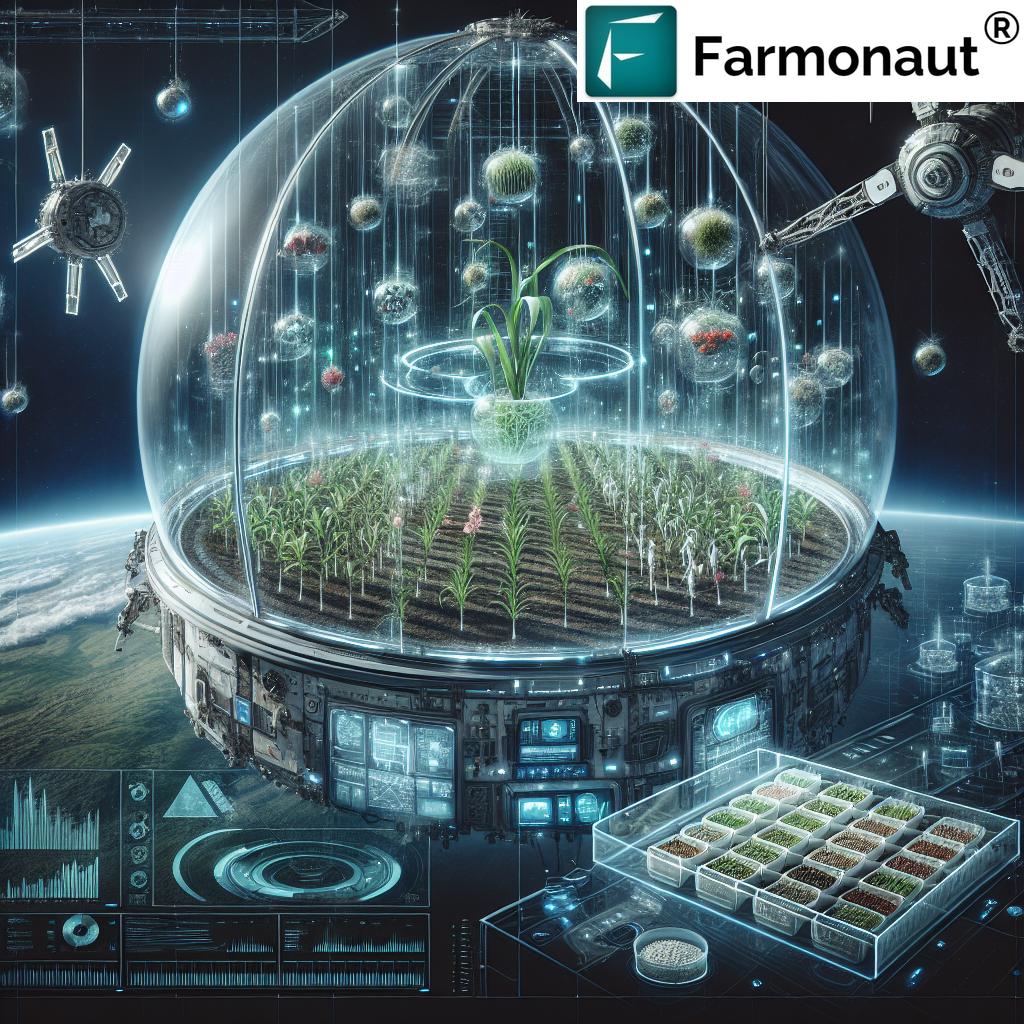
For more information on satellite-based farm management solutions, visit Farmonaut’s API or check out their API Developer Docs.





